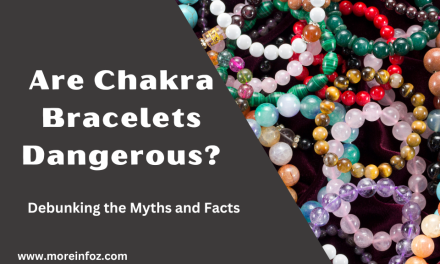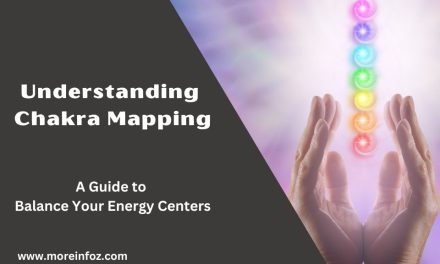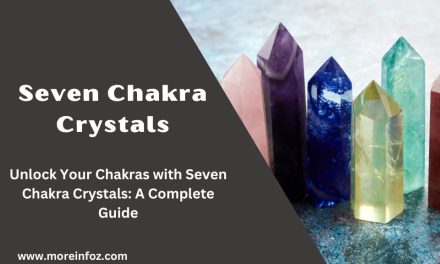If you are looking for a body treatment that feels like a wonderful glowing radiance that flows through and around you Reiki is the treatment made for you. What is Reiki? Reiki is a Japanese technique for stress reduction and relaxation that also promotes healing. It is administered by “lying on hands” and is based on the idea that an unseen “life force energy” flows through us and is what causes us to be alive.
If one’s “life force energy” is low, then we are more likely to get sick or feel stress. If it is high, we are more capable of being happy and healthy. Reiki treats the whole person, including the body; emotions, mind, and spirit, creating many beneficial effects that include relaxation and feelings of peace, security, and wellbeing. Many have reported miraculous results.
Let us talk about the history of Reiki before looking into what is Reiki!
The history of Usui Reiki begins with its founder, Dr. Mikao Usui. After his spiritual awakening on Mount Kurama, Dr. Usui established a clinic for healing and teaching in Kyoto. As the practice of Usui Reiki was spreading, Dr. Usui became known for his healing practice.
He recommended that one practice certain simple ethical ideals to promote peace and harmony, which are nearly universal across all cultures.
During a meditation several years after developing Reiki, Mikao Usui decided to add the Reiki Ideals to the practice of Reiki. The Ideals came in part from the five principles of the Meiji emperor of Japan whom Mikao Usui admired. The Ideals were developed to add spiritual balance to Usui Reiki. Their purpose is to help people realize that healing the spirit by consciously deciding to improve oneself is a necessary part of the Reiki healing experience.
Before he died, Dr. Hayashi managed to impart all of Dr. Usui’s teachings onto Mrs. Takata. She continued to practice Reiki for many years. When she died, she had attuned 22 Reiki masters.
What are reiki principles?
There are five principals of Reiki. Take a look!
- Just for today, I will not worry.
- Just for today, I will not be angry.
- Just for today, I will do my work honestly.
- Just for today, I will give thanks for my many blessings.
- Just for today, I will be kind to my neighbor and every living thing.
And before we move on, you should know that these principles are not exclusive to Reiki Practitioners! Most people already strive to live by these ideals, whether they’re conscious of it or not. In fact, until now no one has discovered repelled by these principles, whether they practice Reiki or not and there are two main reasons for this:
- They’re secular
Absolutely anybody, regardless of their spiritual beliefs, can resonate with these ideals; Atheists, Christians, whatever – these principles stand alongside any moral code.
- They’re practical
The first time you read those principals, the ideas come to your mind is this is just common sense. And so it is! But, like many things, the Reiki principles are SIMPLE, but not EASY.
Huge distinction!
The Reiki Principles are immediately applicable to everyday living, as well as your highest spiritual pursuits.
It’s not necessary to memorize these principles verbatim, nor do you have to reframe your whole spiritual practice around them. However, as a Reiki Practitioner, it’s essential to be aware of them, especially since they make up a core part of Reiki’s history.
The best way to know about these principles is to cultivate a relationship with them, via meditation or journaling. You should think about how these principles apply to your life (if at all) and allow yourself to feel into whether you resonate with them. Honestly, nothing is meaningful unless it means something to YOU.
Below are the outcomes you get from Reiki principles.
- Equanimity
The first two lines, “I will not worry,” and “I will not be angry,” remind us so much of basic Buddhism. That is, non-attachment is the key to keeping your emotions stable. The reason for that is only when you have expectations about an outcome or fear losing something that worry and anger arise.
- Living in the moment
“Just for today” What a different tone it sets!
So far removed from the ridiculously high expectations, we set for ourselves at the beginning of every year – As of today, I vow to ____ this year, and for the rest of my life!!!
Rather, JUST FOR TODAY. You can screw up tomorrow, no biggie.
Just today!
Just now!
Let’s take this one step at a time.
Moment by moment!
Doesn’t your brain relax when you think, “just for today”? Like, seriously, no pressure because today is all we have.
But, that’s NOT to say that you can start indulging in socio-pathic behavior because, after all, it’s “just for today.” NO. The meaning of this is that rather than pressuring yourself to strive for perfection now and forever, do the very best you can right now, and take things one step at a time.
Robin Sharma says that each day is your whole life in miniature and that how you spend your days, so do you spend your life. Trust that every positive action that you take today, even if only for today, will reverberate throughout all of your coming days.
What is Reiki massage?

The purpose of Reiki massage is to help a client become more whole through healing. This non-invasive energy therapy seeks to balance the body’s energy level and increase its ability to heal itself.
Most clients interested in natural types of healing have heard about or are interested in Reiki. This is one reason why developing your massage business might be easier if you add Reiki.
If you’ve ever had a great massage, you understand how you can feel both relaxed and invigorated at the same time. Its practice is perfect for clients hesitant to remove clothing for a Swedish massage or resistant to hands-on techniques. Some therapists incorporate it during a massage to more deeply penetrate tissues with healing energy. Others add it after a full-body massage to make sure clients leave with an added dimension of and sense of wellbeing.
Since Reiki promotes healing of the individual rather than only treating a specific condition, it’s ideal for clients searching for a natural way to good health.
Are you concerned about how to grow your massage practice if you add Reiki? Consider word of mouth using current clients. One enjoyable way to promote your practice is by exchanging services with a Reiki practitioner.
What is Reiki meditation?

Reiki meditation is a process through which you can experience silence and a quiet mind.
The Reiki meditative energy is healing and loving. It involves symbols and mantras to facilitate your meditation experience. It ranks high among the traditional healing systems. Check below to find out the manner of its practice.
There are four techniques in reiki meditation.
1. Cleansing the System
3. Healing Through Hands
4. Final Thought
What is reiki yoga?
Reiki Yoga is the union of two ancient traditions to offer physical, mental, and spiritual wellness.
It is a soothing practice that combines carefully selected gentle Yin Yoga postures held for 3 to 5 minutes, with a Reiki treatment. It is offered by a master using the imposition of the hands to support and boost the natural healing and cleansing processes in the body. This unique and exclusive combination, the signature of The Yoga Trail, encourages the flow of life energy (Prana or Ki) in the body removing blockages and unbalances in the chakras, re-establishing inner peace and wellbeing.
Reiki Rays
Reiki rays are the online reiki webpage which is your daily source of Reiki inspiration.
Reiki Rays is a global community of Reiki practitioners and teachers dedicated to creating a brighter and more aware future for all the reiki users. We assist and empower our community members with opportunities for personal and spiritual growth – a wide variety of Reiki articles and infographics, free guided meditations, free e-books, online courses, and summits via our Reiki Rays University platform.
Since its founding in 2012, Reiki Rays has touched the lives of more than four million people. It is becoming now one of the world’s most popular and respected source of Reiki knowledge.
Reiki benefits
There are many incredible benefits of Reiki. Reiki is a straightforward process but usually produces quite profound effects. The primary purpose of a reiki treatment is not only to support the physical body, but also to promote a positive mind so you can experience more joy in life.
What are reiki benefits?
1. Promotes Harmony & Balance
2. Creates deep relaxation and helps the body release stress and tension
3. Dissolves energy blocks and promotes natural balance between mind, body, and spirit
4. Assists the body in cleansing itself from toxins and supports the immune system
5. Clears the mind and improves focus as you feel grounded & centered
6. Aids better sleep
7. Accelerates the body’s self-healing ability as you start to return to your natural state
8. Helps relieve pain and support the physical body healing
9. Promotes spiritual growth and emotional cleansing
10. Compliments medical treatment & other therapies
11. You can learn Reiki yourself
Disadvantages of Reiki
Before getting Reiki treatments consult with your primary health care provider and weigh the modality’s advantages against its disadvantages. Below are the difficulties that happen due to Reiki.
- No Formal Regulation
Because Reiki mostly works outside the paradigm of western medicine and science, its practice is not regulated in western countries.
- Limited Scientific Support
- Limited Insurance Coverage
- Individual Variation
Even if you have a reliable, first-hand testimony to the effectiveness of Reiki in curing an ailment similar to your own, the effects of Reiki treatment may vary widely from one individual to another.
Reiki and Christianity
In March 2009, the Committee on Doctrine of the United States Conference of Catholic Bishops issued the document Guidelines for Evaluating Reiki as an Alternative Therapy. They declared that the practice of Reiki was based on superstition, being neither truly faith healing nor science-based medicine.
[43][44] Explaining that the Catholic Church believes in healing, “the bishops noted that the Church recognizes two kinds of healing: healing by divine grace and healing that utilizes the powers of nature.” [45] The Church teaches that if a Catholic seeks “bodily healing from God, the sacrament of the Anointing of the Sick has been passed down … throughout the centuries” to trust in the Divine, strengthen resolve and authentically heal one in body and soul.
The 2009 guideline concluded that “since reiki therapy is not compatible with either Christian teaching or scientific evidence, it would be inappropriate for Catholic institutions, such as Catholic health care facilities and retreat centers, or persons representing the Church, such as Catholic chaplains, to promote or to provide support for Reiki therapy.
In December of 2014, the USCCB Committee on Divine Worship noted in an article about exorcism and its use in the Church that one of the regional or cultural influences that might open a person to demonic possession and the “current state of the afflicted person” includes involvement in the practice of Reiki.[48] Since this announcement, some Catholic laypeople have continued to practice Reiki, but it has been removed from many Catholic hospitals and other institutions.[49]
The relationship between Reiki and Buddhism
Although Reiki is not based on a specific religious belief, it is spiritual. And that’s just one of the ways Reiki and Buddhism make a great match.
Here come a few others:
- Reiki and Buddhism both stress the importance of living and acting in ways that create harmony with your fellows. This harmonious way of life serves as the foundation of both practices.
- Meditation is a powerful element in both Reiki and Buddhism, and the two combines into Buddhist Reiki meditations.
- Reiki has Buddhist roots through its founder, Japanese Mikao Usui. Tradition says Usui was graced with some of the insights of his path for later establishing Reiki while attending a Buddhist retreat.
- Buddhism and Reiki both contain five similar precepts. Buddhist doctrines encourage abstaining from lying, stealing, substance abuse, violence, and sexual dereliction. Reiki precepts have many modern versions floating around, but they generally stem from the same basic ethical principles. They encourage avoiding anger and worry while practicing gratitude, working hard, and being kind.
And if Reiki can make Buddha smile, think what it can do for you.
Wrapping Up…
Reiki hasn’t been clearly shown to be useful for any health-related purpose. It has been studied for a variety of conditions, including pain, anxiety, and depression, but most of the research has not been of high quality, and the results have been inconsistent.
There’s no scientific evidence supporting the existence of the energy field thought to play a role in Reiki.






Trackbacks/Pingbacks